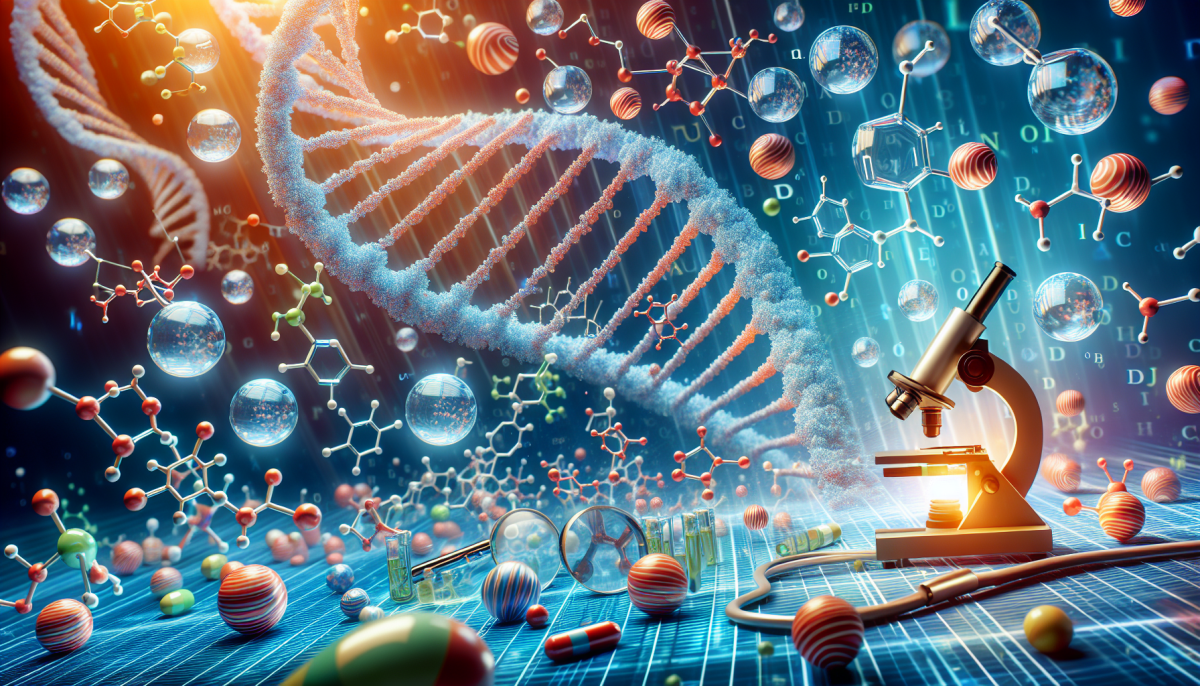Exploring the Building Blocks of Life: Understanding Amino Acids
Amino acids are the fundamental building blocks of life. They are the basic units that make up proteins, which are essential for the proper functioning of our bodies. Understanding the properties and functions of amino acids is crucial for gaining insight into how life processes work.
There are 20 different types of amino acids that can be found in the proteins of living organisms. Each amino acid has a unique chemical structure and distinct properties that contribute to its specific function in proteins. These amino acids are classified based on the structure of their side chains. The side chains can be either acidic or basic, polar or nonpolar, and can have different functional groups.
One of the key properties of amino acids is their ability to form peptide bonds. Peptide bonds are formed between the carboxyl group of one amino acid and the amino group of another, resulting in the formation of a peptide chain. The sequence of amino acids in a protein determines its unique structure and function.
In addition to their role in protein synthesis, amino acids have other important biological functions. Some are involved in energy production and metabolism, while others act as neurotransmitters and hormones. Amino acids also play a role in the immune system and can be used as precursors for the synthesis of other important molecules such as nucleotides and heme.
Understanding the properties and functions of amino acids is crucial for the study of biochemistry, genetics, and molecular biology. By unraveling the mysteries of these tiny molecules, we gain a deeper understanding of the complex processes that make life possible.
The Importance of Amino Acids in Proteins and Beyond
Amino acids are the building blocks of proteins, and proteins are the building blocks of life. Without amino acids, it is impossible for cells to function properly. These crucial molecules play a crucial role in a variety of biological processes and are essential for maintaining good health.
One of the key roles played by amino acids is protein synthesis. When amino acids combine together, they form peptide bonds, which create long chains of proteins. Each amino acid has a specific chemical structure, allowing it to interact with other amino acids in specific ways. This interaction between amino acids determines the structure and function of the protein.
In total, there are 20 different amino acids, each with different chemical properties. Some amino acids are polar, while others are non-polar. Some have acidic or basic properties, while others are neutral. These differences in chemical properties allow amino acids to perform a variety of functions in the body, from facilitating metabolic processes to maintaining the body's pH balance.
Amino acids are not only important for building proteins; they also play a crucial role in many other biological processes. For example, amino acids are used in the production of neurotransmitters, which are essential for sending signals throughout the nervous system. Amino acids are also used to create hormones, such as insulin, which regulates blood sugar levels in the body.
Many amino acids also have antioxidant properties, which help protect cells from damage caused by free radicals. Free radicals are unstable molecules that can cause cellular damage and contribute to aging and disease.
For athletes and fitness enthusiasts, amino acids are often used as supplements to support muscle growth and recovery. Branched-chain amino acids (BCAAs) are particularly popular among athletes, as they are essential for building and repairing muscle tissue.
In summary, amino acids are essential for maintaining good health and are involved in a wide variety of biological processes, from protein synthesis to hormone production. Whether you are an athlete, a fitness enthusiast, or simply someone looking to maintain good health, understanding the importance of amino acids is crucial for achieving your health and wellness goals.
The Different Types of Amino Acids and Their Functions in the Human Body
Amino acids are the building blocks of proteins and are essential nutrients for our bodies. There are 20 different types of amino acids that can be found naturally in the human body.
Essential Amino Acids
Essential amino acids cannot be produced by the body and must be obtained through the diet. There are nine essential amino acids:
- Phenylalanine: Helps produce neurotransmitters and is important for brain function.
- Valine: Maintains muscle tissue and helps with energy production.
- Threonine: Plays a role in immune function and helps produce collagen.
- Tryptophan: Produces serotonin and melatonin, which regulate mood and sleep.
- Methionine: Plays a role in metabolism and helps produce important molecules in the body.
- Leucine: Stimulates muscle protein synthesis and is important for muscle growth and repair.
- Isoleucine: Helps regulate blood sugar levels and energy production.
- Lysine: Needed for growth and tissue repair, as well as production of hormones, enzymes, and antibodies.
- Histidine: Important for digestive health and helps produce histamine, which is involved in the immune response.
Nonessential Amino Acids
Nonessential amino acids can be produced by the body and do not need to be obtained from the diet. There are 11 nonessential amino acids:
- Alanine: Helps produce glucose, which is important for energy production.
- Arginine: Important for immune function and helps produce nitric oxide, which relaxes blood vessels.
- Asparagine: Helps produce neurotransmitters and plays a role in the immune system.
- Aspartic acid: Important for energy production and neurotransmitter function.
- Cysteine: Helps produce antioxidants and plays a role in protein synthesis.
- Glutamic acid: Important for brain function and the immune system.
- Glutamine: Helps with muscle growth and repair and reduces inflammation.
- Glycine: Plays a role in the central nervous system and helps produce collagen.
- Proline: Important for collagen synthesis and helps support joint health.
- Serine: Helps produce neurotransmitters and is involved in immune function.
- Tyrosine: Important for brain function and the production of hormones and neurotransmitters.
Overall, amino acids play important roles in the human body, from building muscles and tissues to regulating mood and producing energy. Getting a balance of essential amino acids through your diet is key to maintaining good health.
Pure L Glutamine Powder Unflavored 500g
Boost your recovery and support gut health with this versatile, unflavored powder
Product information
$18.34
Product Review Score
4.66 out of 5 stars
153 reviews








